Leopold Senghor — Two Poems
Femme noire
Femme nue, femme noireVétue de ta couleur qui est vie, de ta forme qui est beauté
J’ai grandi à ton ombre; la douceur de tes mains bandait mes yeux
Et voilà qu’au cœur de l’Eté et de Midi,
Je te découvre, Terre promise, du haut d’un haut col calciné
Et ta beauté me foudroie en plein cœur, comme l’éclair d’un aigle
Femme nue, femme obscure
Fruit mûr à la chair ferme, sombres extases du vin noir, bouche qui fais lyrique ma bouche
Savane aux horizons purs, savane qui frémis aux caresses ferventes du Vent d’Est
Tamtam sculpté, tamtam tendu qui gronde sous les doigts du vainqueur
Ta voix grave de contralto est le chant spirituel de l’Aimée
Femme noire, femme obscure
Huile que ne ride nul souffle, huile calme aux flancs de l’athlète, aux flancs des princes du Mali
Gazelle aux attaches célestes, les perles sont étoiles sur la nuit de ta peau.
Délices des jeux de l’Esprit, les reflets de l’or ronge ta peau qui se moire
A l’ombre de ta chevelure, s’éclaire mon angoisse aux soleils prochains de tes yeux.
Femme nue, femme noire
Je chante ta beauté qui passe, forme que je fixe dans l’Eternel
Avant que le destin jaloux ne te réduise en cendres pour nourrir les racines de la vie.
Black Woman
Naked woman, black womanClothed with your color that is life
The previous line tells you that the woman is naked. So what is she clothed with? Her skin. And what color is that skin? Black. Black, then, in this poem, is the color of life, not green.
closeI grew up in your shadow; the softness of your hands shaded my eyes.
And here, in the heart of Summer, at high noon,
This line alludes to the opening of Dante's Divine Comedy:
In the middle of our life’s journey, I found myself in a dark wood.
This quotation itself is a reference to Isaiah 38:10, where Hezekiah, the King of Judah laments his early death:
I said, In the noontide of my days
I must depart;
I am consigned to the gates of Sheol
for the rest of my years.
Here Senghor uses both seasonal and diurnal imagery to place this poem at the midpoint of both the year and the day (and his life).
closeI discover you
Playing with the idea that the colonizers "discovered" Africa, Senghor says that he "discovered" something that has existed in the world since Mitochondrial Eve (the most recent common ancestor of all living human beings). He has no more "discovered" her than Columbus "discovered" the New World or Europe "discovered" Africa. She has entered his field of awareness, that's all.
closeAgain, a biblical reference, to Canaan, the Promised Land for the Israelites. During their Exodus, the Israelites wandered in the desert for 40 years before they entered this land of milk and honey. The irony is that they were fleeing slavery at the hands of the Egyptians, while slavery itself brought an exodus from the shores of Africa, as many were forced into exile through this bondage.
closeThe hill is charred because it's been burned over. It's a technique called slash-and-burn cultivation, a method of farming that requires little technology. Once crops are harvested, what remains on the land is burned in place. The resulting layer of ash provides the newly-cleared land with nutrients to help fertilize whatever crops are planted next.
Senghor aligns the Black Woman with the natural cycles of birth and death, and nods to her fertility, connected with the fertility of the land.
And your beauty flashes in my heart like the lightning of an eagle.
Naked woman, dark woman
Ripe fruit with firm flesh, shadowed raptures of black wine, mouth that makes mine lyrical
Savannah of clear horizons, savannah shuddering at the loving touch of the East Wind
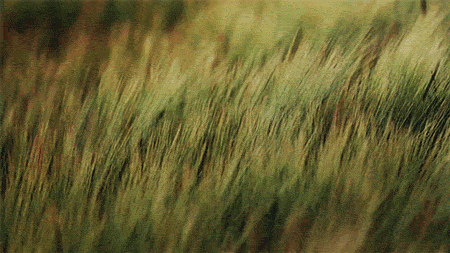
The Black Woman represents the continent. The grassland is moved by the wind as if it were her hair. Some editors say this is the harmattan, a dry, dusty easterly or northeasterly wind on the West African coast, occurring from December to February. But, given the context, this seems more likely to be the northeast trade winds that flow from east to west across the continent. These trade winds are far more gentle, and bring the monsoon with its renewing rain from June to October, replenishing the land for agriculture.
closeSculpted tom-tom, taut tom-tom
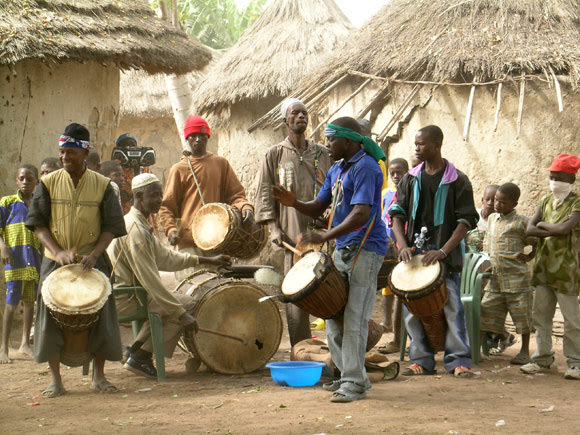
Here the Black Woman's body, with its tight, taut lines, becomes the djembe, a traditional African drum. Her skin, soothed above by the wind, is now streteched taut and groans, or sounds, as she is "played" by the colonizers.
closeSenghor extends this metaphor of colonization. The continent itself cries out as it is played, handled, fingered, or rather, manhandled by the manipulations of the colonizers. In Senghor's French, the term for hand is main.
closeYour deep contralto voice is the spiritual song of the Beloved
Another biblical reference, this time to the Song of Solomon. This book is usually read as an allegory of God's love for humanity. The "beloved," in the biblical text, signifies both the human and the Divine. Here Senghor recalls it to reinforce the African-centered nature of Négritude. Her voice is not the typically feminine (and European-centered) soprano, but the lower-pitched, earthy, alto.
Here is Song of Solomon 1:1-5:,
O that you would kiss me with the kisses of your mouth!
For your love is better than wine,
your anointing oils are fragrant,
your name is oil poured out;
therefore the maidens love you.
. . .
I am black and beautiful,
O daughters of Jerusalem,
like the tents of Kedar,
like the curtains of Solomon.
The voice of the Beloved sets up some images following this stanza. Here is Song of Solomon 2:8-9:
The voice of my beloved!close
Look, he comes,
leaping upon the mountains,
bounding over the hills.
Naked woman, dark woman
Oil that no breath ruffles, oil calming the muscles of athletes
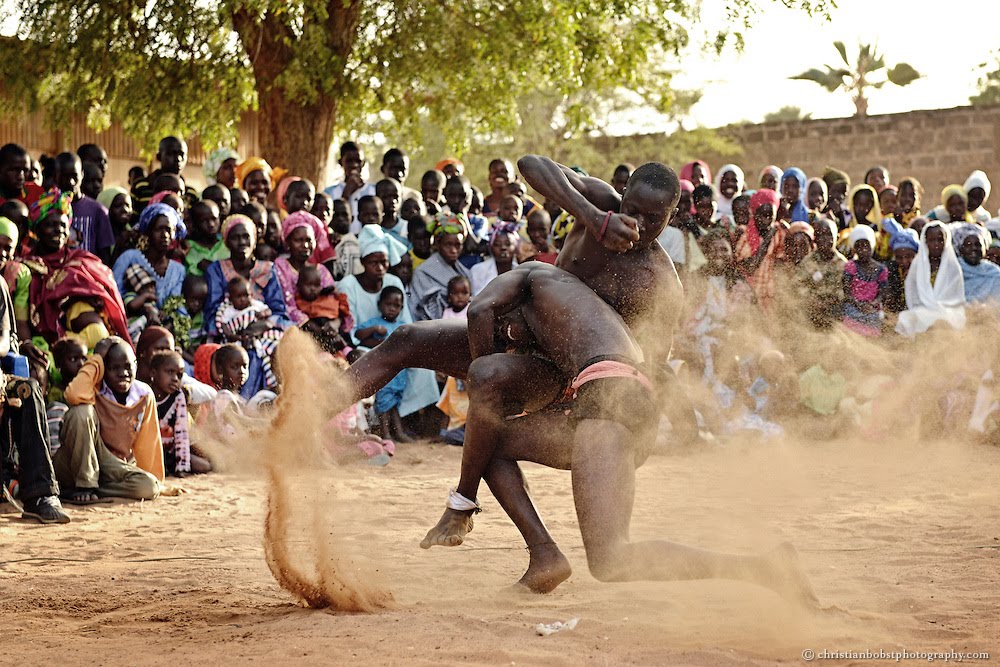
Wrestling is the national sport of Senegal. Wrestlers use oil both for muscle massages before a match and to make it more difficult for their opponents to get a grasp on them.
close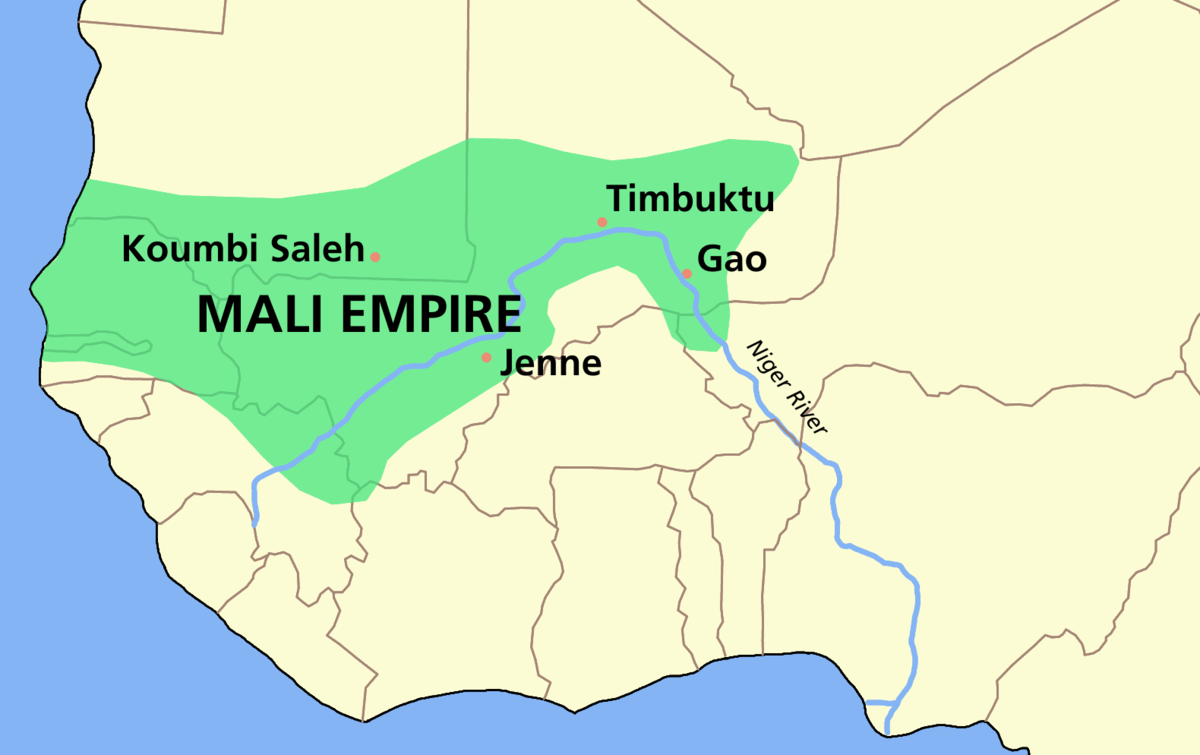
Oil is also a sign of being chosen , by either those around you or by the Divine. Kings and princes are anointed, and the chrism used (chrism is a concentrated, perfumed oil) signifies being set apart. The Mali empire once covered a significant amount of modern-day Senegal.
closeGazelle fastened to the firmament
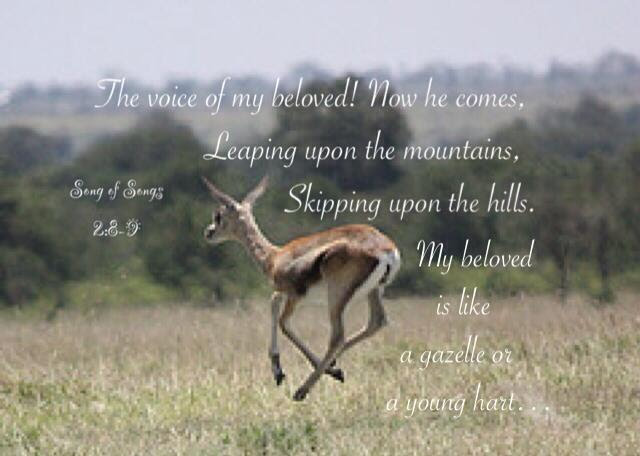
Another image from the Song of Solomon, a continuation of the final line above:
My beloved is like a gazelle
or a young stag.
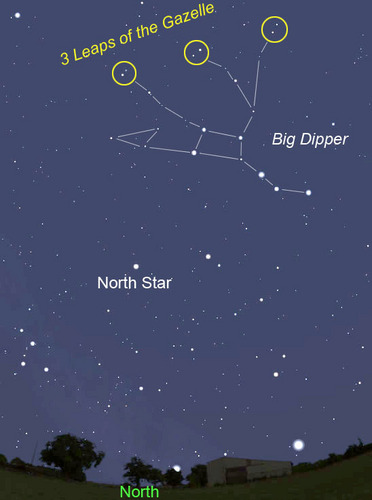
an ancient Arabic / North African asterism
But this time the gazelle is apotheosized, turned into a constellation of stars, fastened into the firmament of heaven.
Delights of the Spirit’s play, ripples of gold-red on your shimmering skin
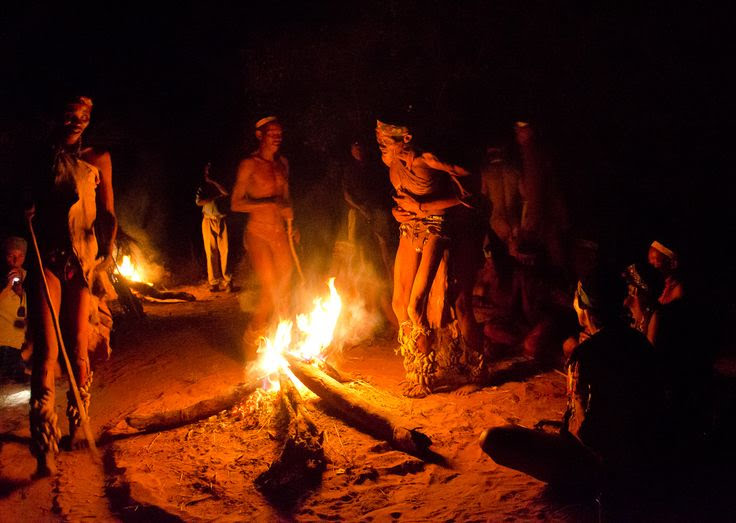
Now the naked Black Woman stands in the firelight, and the fire makes her skin shine with this gold-red color.
closeIn the shadow of your hair, my care is lightened by the twin suns of your eyes.
Naked woman, black woman,
I sing your beauty that passes, a form I fix for Eternity,
Senghor makes the Modernist move here, reminding us that we're looking at a work of art or a production. But because we're doing so, he is able to take the beauty of the Black Woman, a beauty that will naturally fade, and create a version of it that will not succumb to the ravages of time. That version is this poem.
closeBefore jealous fate turns you to ashes to nourish the roots of life
Senghor calls us back to the charred hilltop. Eventually the Black Woman will die, and her body will be returned to the soil, where it will continue to participate in the circle of life and death by providing sustenance for the new life that will grow from that soil.
The ramifications of this for the Senghor's position in line 5 above are that Senghor is standing on the body of the Black Woman, that body which has been committed back to the earth.
And yet, even though that physical body has turned back to the earth from which it came, it is preserved in all its beauty through this poem he has created.close
Prière aux masques
Masques! Ô Masques!Masque noir masque rouge, vous masques blanc-et-noir
Masques aux quatre points d’où souffle l’Esprit
Je vous salue dans le silence!
Et pas toi le dernier, Ancêtre à tête de lion.
Vous gardez ce lieu forclos à tout rire de femme, à tout sourire qui se fane
Vous distillez cet air d’éternité où je respire l’air de mes Pères.
Masques aux visages sans masque, dépouillés de toute fossette comme de toute ride
Qui avez composé ce portrait, ce visage mien penché sur l’autel de papier blanc
A votre image, écoutez-moi!
Voici que meurt l’Afrique des empires — c’est l’agonie d’une princesse pitoyable
Et aussi l’Europe à qui nous sommes liés par le nombril.
Fixez vos yeux immuables sur vos enfants que l’on commande
Qui donnent leur vie comme le pauvre son dernier vêtement.
Que nous répondions présent à la renaissance du Monde
Ainsi le levain qui est nécessaire à la farine blanche.
Car qui apprendrait le rythme au monde défunt des machines et des canons?
Qui pousserait le cri de joie pour réveiller morts et orphelins à l’aurore?
Dites, qui rendrait la mémoire de vie à l’homme aux espoirs éventés?
Ils nous disent les hommes du coton du café de l’huile
Ils nous disent les hommes de la mort.
Nous sommes les hommes de la danse, dont les pieds
reprennent vigueur en frappant le sol dur
Prayer to the Masks
Masks! Oh Masks!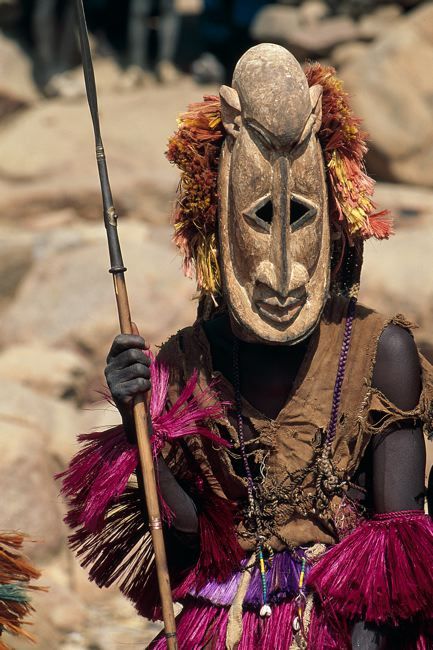
In most traditional African cultures, the person who wears a ritual mask conceptually loses his or her human identity and turns into the spirit represented by the mask itself. This transformation of the mask wearer into a spirit usually relies on other practices, such as specific types of music and dance, or ritual costumes that contribute to conceal the mask-wearer's human identity. The mask wearer thus becomes a sort of medium that allows for a dialogue between the community and the spirits (usually those of the dead or nature-related spirits).
closeBlack mask, red mask, you black-and-white masks
Masks of the four corners
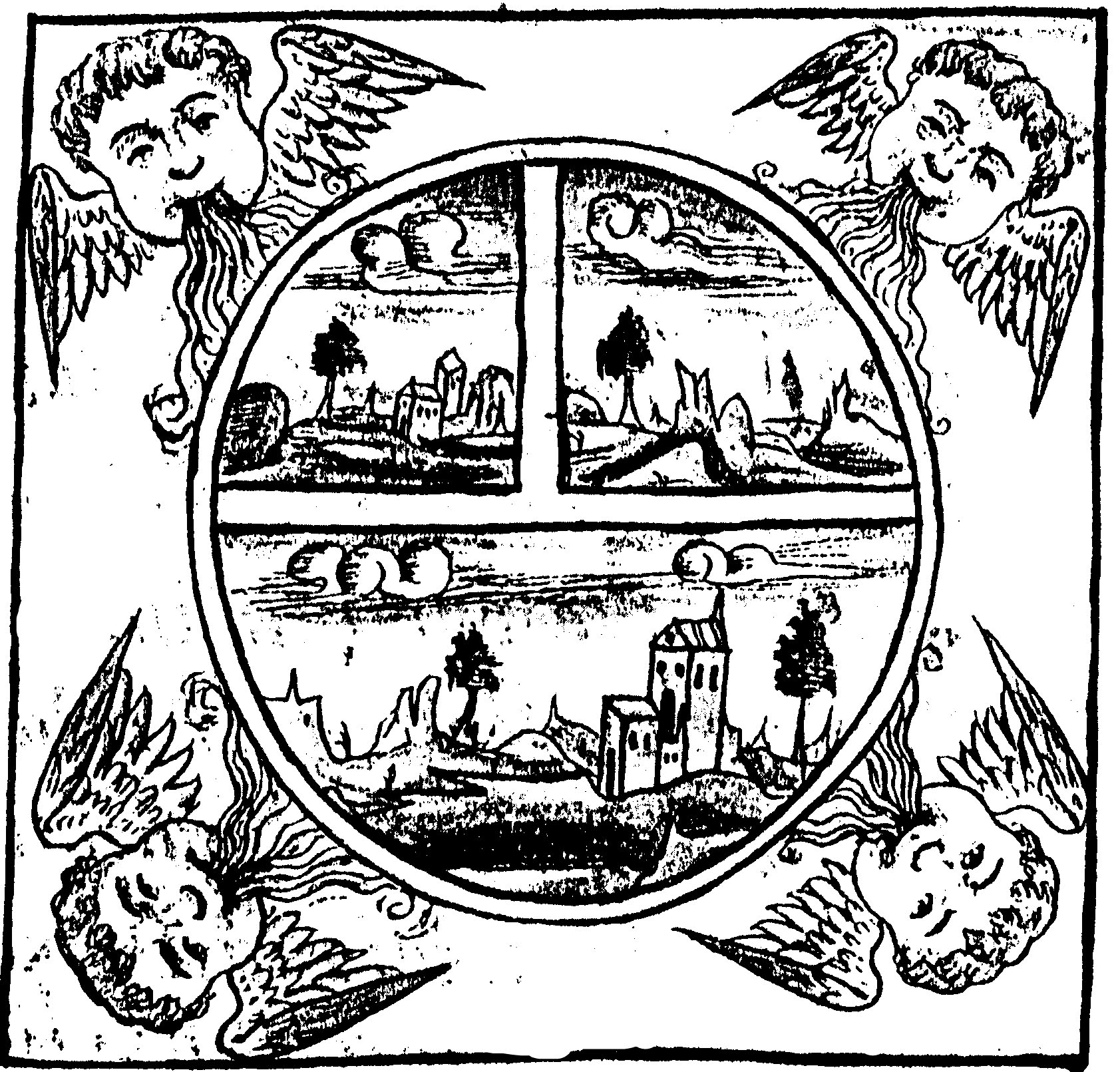
From The Florentine Codex, 1577.
The winds from the cardinal points of the compass were often portrayed as coming from angels or masks that were placed on the borders or at the corners of a map or picture. This is a symbolic representation of a four-fold cosmic (heavenly) division and a three-fold terrestrial (earthly) division.
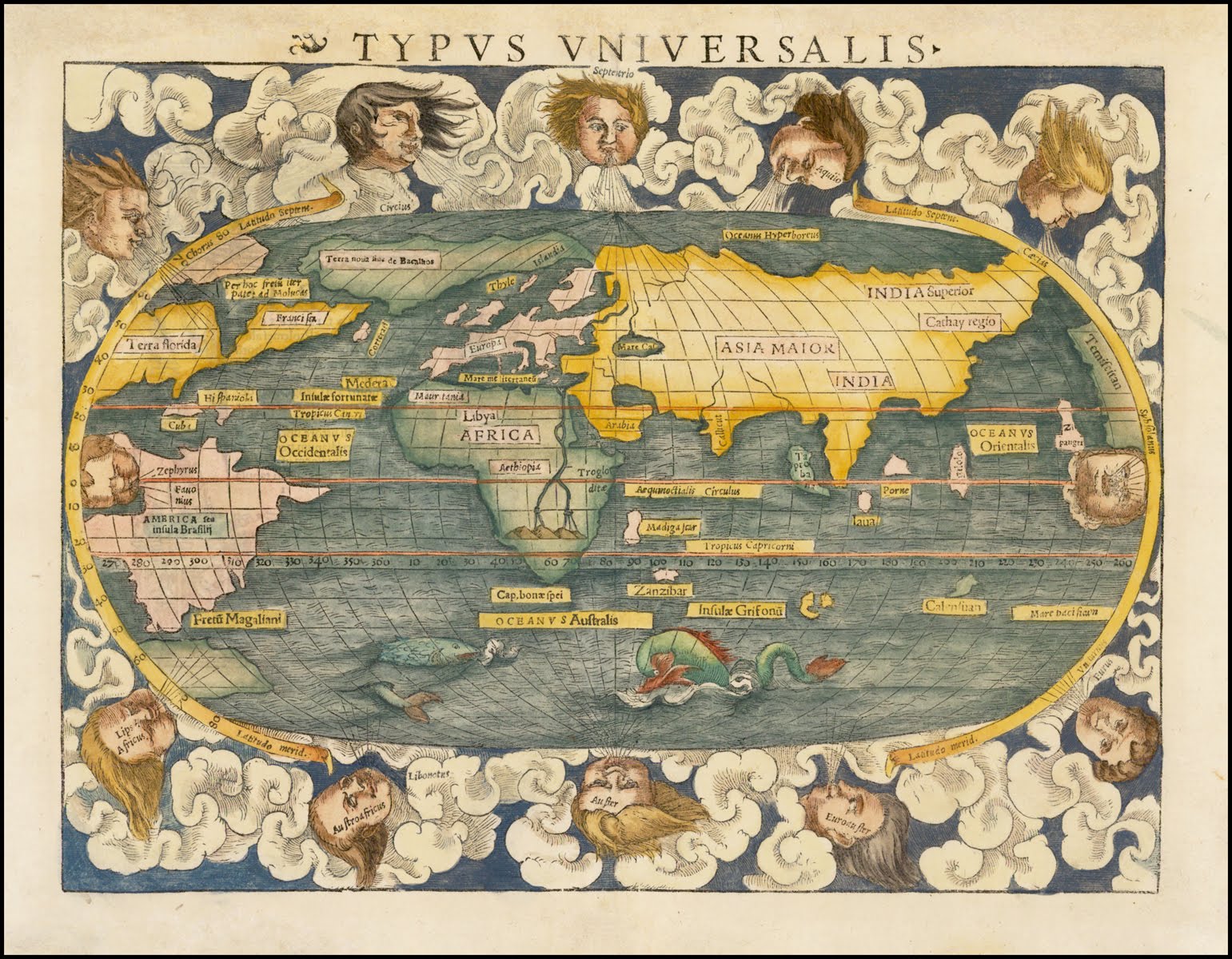
One of the most recognized world maps of the 16th Century.
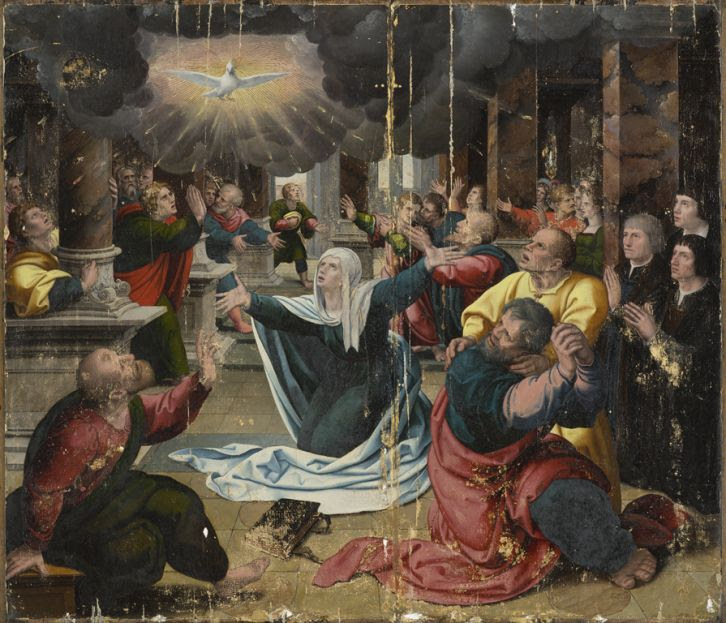
comes with a mighty wind, or breath.
When the day of Pentecost came, they were all together in one place. Suddenly a sound like the blowing of a violent wind came from heaven and filled the whole house where they were sitting. They saw what seemed to be tongues of fire that separated and came to rest on each of them.
-- Acts of the Apostles 2:1-3.
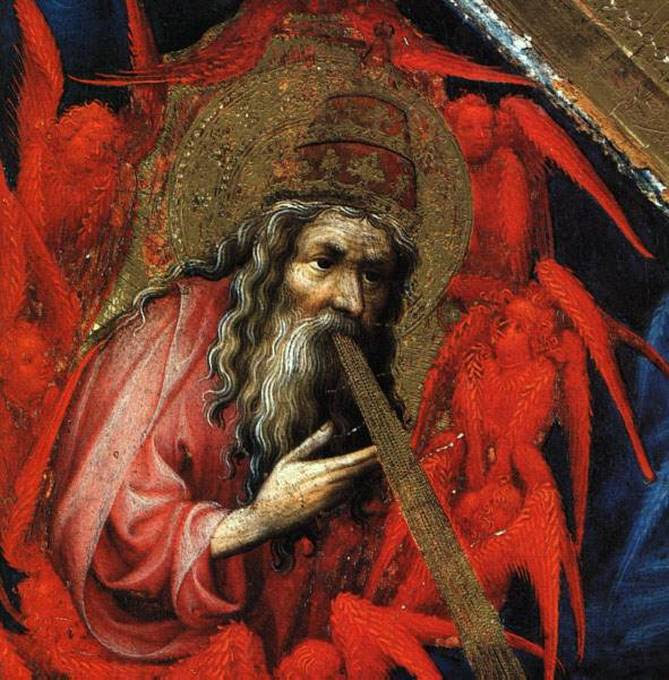
The enemy boasted, "I will pursue, I will overtake them. I will divide the spoils; I will gorge myself on them. I will draw my sword and my hand will destroy them." But you blew with your breath, and the sea covered them. They sank like lead in the mighty waters.
-- Exodus 15:9-10
I salute you in silence!
And not the last, you, Ancestor with the lion’s head.
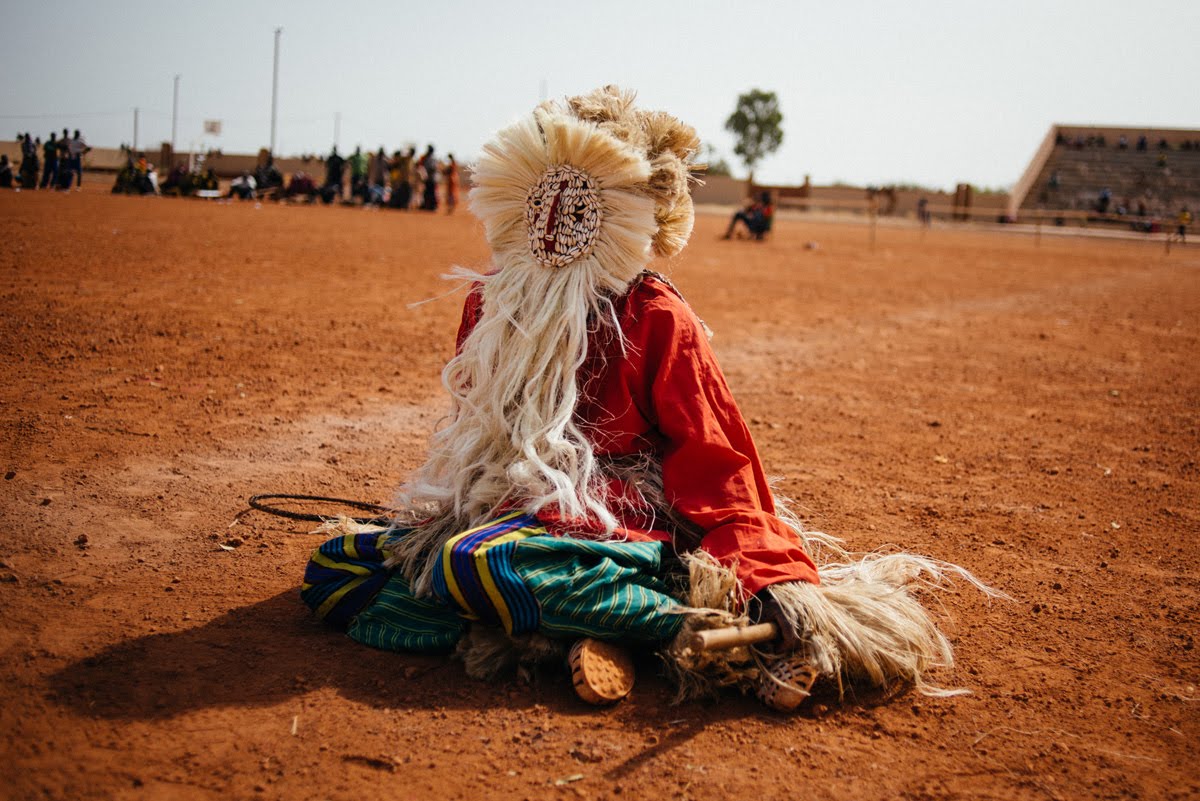
divine beings, or animal spirits.
Senghor's family's guardian animal, the lion, symbol of virtue and courage. Traditionally, these animals were thought to be the first ancestor and the protector of the family line. This also alludes to the name of his father, Diogoye, which in his native Serer language means lion. In ceremonies in which masks would be used, the family might be represented by a lion mask.
closeYou keep this place safe from any women’s laughter, all smiles that will fade
Senghor further reinforces the implications of long tradition and patriarchal power. The lion guards the ground that is forbidden to women and to passing things, in favor of values, memories, and customs that connect him with his ancestors.
closeYou distill this eternal essence
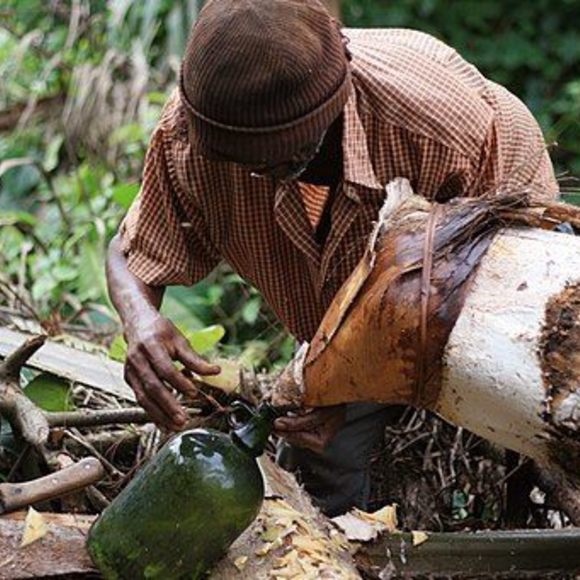
The literal meanings of distill are to either purify a liquid by vaporizing it, then condensing it by cooling the vapor, and collecting the resulting liquid—that is, to boil something down and capture a far more concentrated, "essential" version of it—or to extract the essential meaning or most important aspects of a thing.
Distilling wine into a stronger drink was common throughout North and West Africa by the 11th century. The Arab poet Abu Nuwas described the result of distillation as a wine that
has the color of rainwater
but is as hot inside the ribs
as a burning firebrand.
Senghor plays with both meanings here, stating that the masks act like a liquor still, concentrating something eternal, something that will not fade with time, into a fifth element, or quintessence of his ancestry.close
Masks of unmasked faces, stripped of all dimples, all wrinkles.
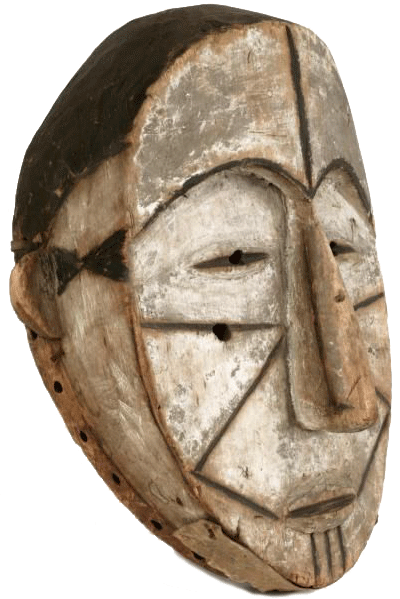
The masks are timeless representations of previously living faces. They smooth over the once-human features and signs of age in the faces of the ancestors, and thus live beyond their death.
closeYou have painted this portrait, my face bending over this altar of white paper.
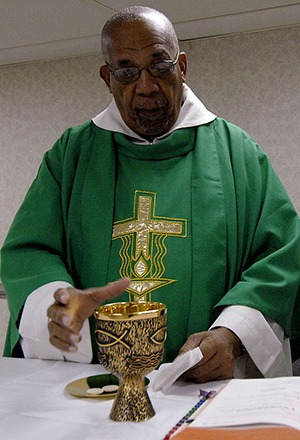
offering a sacrifice at an altar.
The people these masks embody have given shape to the person writing the poem.
Like a monk in a scriptorium, or a priest at an altar, he is bent over his altar/page.
His writing, then, is his sacrifice.
Senghor here makes a typically modernist move, calling attention to the creation of the work of art.
With your faces, hear me!
Here dies the Africa of empires
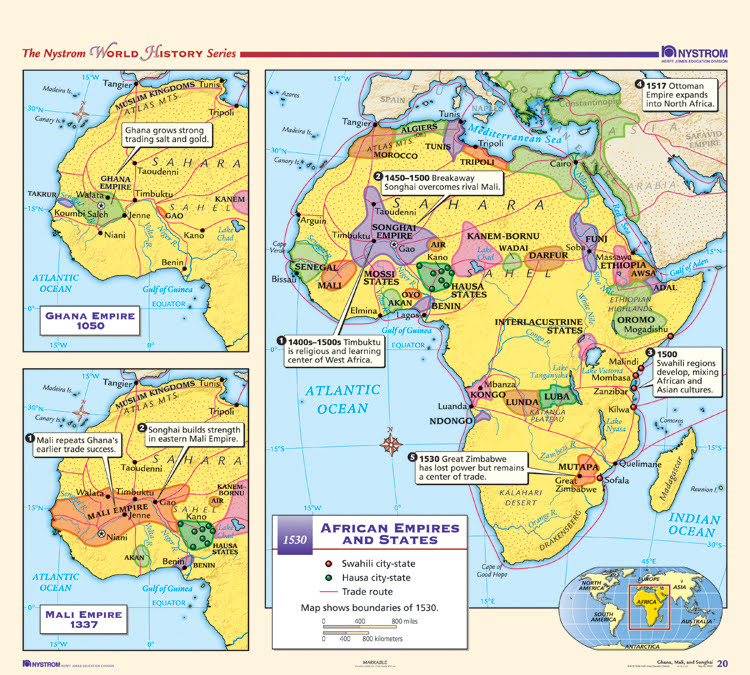
Note the Mali Empire.
The past empires and kingdoms of African self-rule are over. They once covered the continent, but now Africa is subject to European colonization.
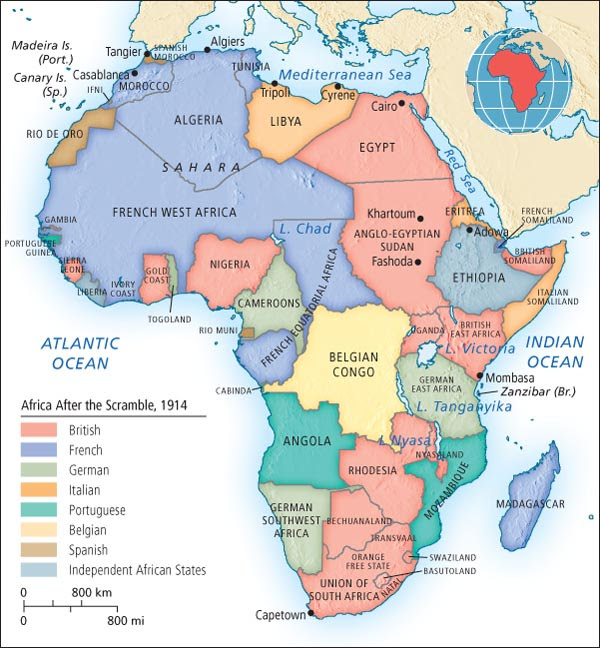
when European colonial powers divided the continent.
Senghor was living in a time after the infamous "Scramble for Africa," which took place in the late 19th and early 20th centuries. Here European powers colonized the continent for its natural resources.
closeAnd with it Europe, for we are bound by the navel
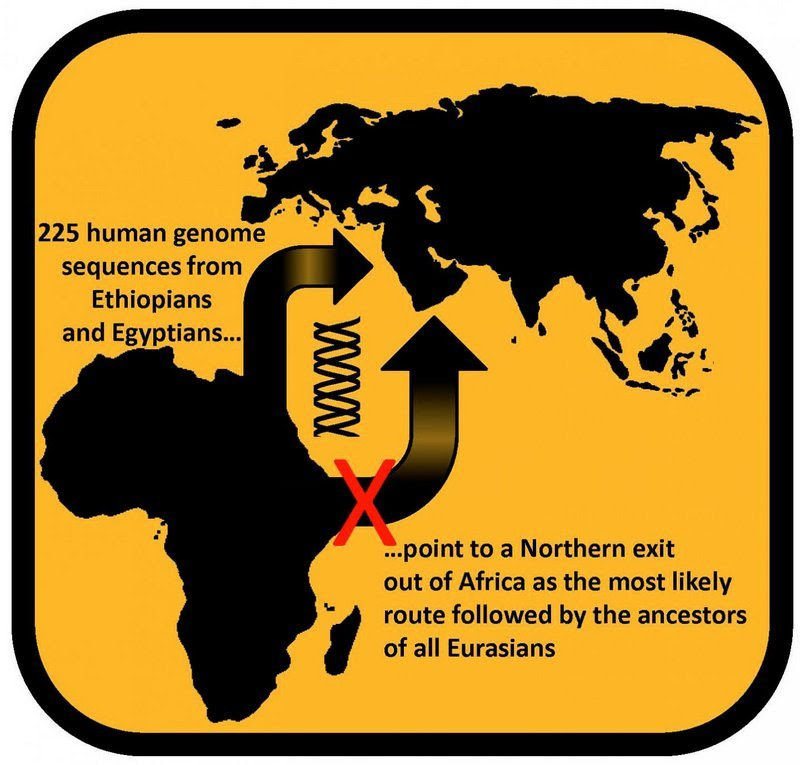
Africa is the mother or Europe, and they are bound by an umbilical cord.
closeFix your unmoving eyes on your oppressed children
Who give their lives like the poor their last garments
The idea behind this image is taken from Matthew 5:39-40:
But I tell you, do not resist an evil person. If anyone slaps you on the right cheek, turn to them the other cheek also. And if anyone wants to sue you and take your shirt, hand over your coat as well.
This is referring to a poor person who borrows money and cannot repay the debt. In Jewish law at the time, a creditor, by law, could take a borrower's inner garment. Jesus asks more: a stand against humiliation and resistance to oppression.
This would mean stripping off all their clothing and marching out of the court stark naked! Imagine the hilarity this saying must have evoked. There stands the creditor, covered with shame, the poor debtor's outer garment in the one hand, his undergarment in the other. The tables have suddenly been turned on the creditor. The debtor had no hope in winning the case; the law was entirely in the creditor's favor. But the poor man has transcended this attempt to humiliate him. He has risen above the shame. At the same time, he has registered a stunning protest against a system that spawns such debt.close
Jesus provides here a hint of how to take on the entire system in a way that unmasks its essential cruelty and to burlesque its pretensions to justice, law and order. Here is a poor man who will no longer be treated as a sponge to be squeezed dry by the rich.
--Walter Wink, "Neither Passivity nor Violence: Jesus’ Third Way"
So we may respond, "Present!" at the rebirth of the World

Aggiornamento, the New Jerusalem.
Call it what you like,
but it means a new way of living.
This is not just a new Renaissance, but a new world. It alludes both to a renewed sense of humanity discovered after the horrors of the world wars and to the Book of Revelation, with the dead rising at the last trumpet. See line 19.
closeAs necessary as leaven for white flour
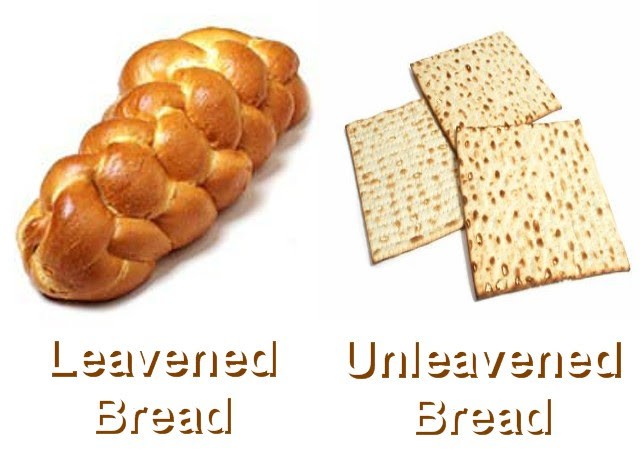
Without it flour is bland and lifeless.
White flour cannot rise on its own. It needs a biological, chemical, or mechanical agent that will allow it to rise. Common leavens are yeast or sourdough starter. Here is Matthew 13:33:
He told them another parable: “The kingdom of heaven is like yeast that a woman took and mixed in with three measures of flour until all of it was leavened.”close
For who will teach rhythm to a world deadened by machines and guns

who will remind us of our humanity?
The world has become almost inhuman with its focus on mass production and warfare. Africans are needed to teach Europeans what it means to be human again.
closeWho will sound the cry of joy to wake the dead and orphaned at daybreak?
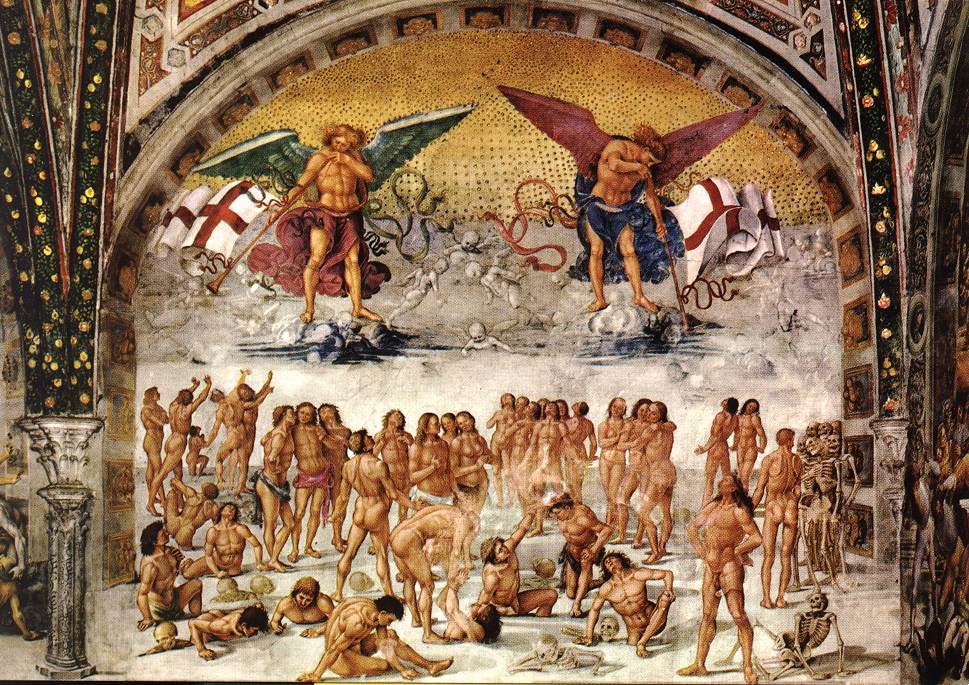
by Luca Signorelli (c. 1500 CE)
Another famous biblical reference, to 1 Corinthians 15:51-52: "Behold, I shew you a mystery; We shall not all sleep, but we shall all be changed, In a moment, in the twinkling of an eye, at the last trump: for the trumpet shall sound, and the dead shall be raised incorruptible, and we shall be changed."
closeTell me, who will bring back the memory of life to the man of gutted hopes
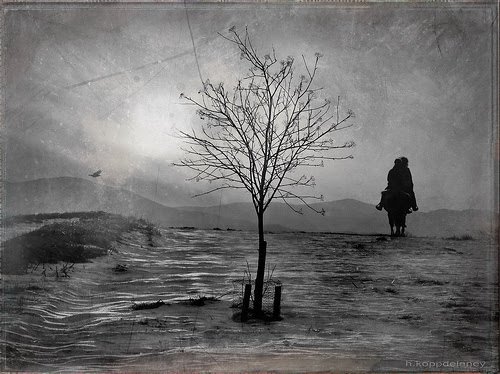
The memory what what life once was, what life once meant when we knew how to be human, will bring hope to those who have had it ripped from them.
closeThey call us men of cotton, coffee, and oil
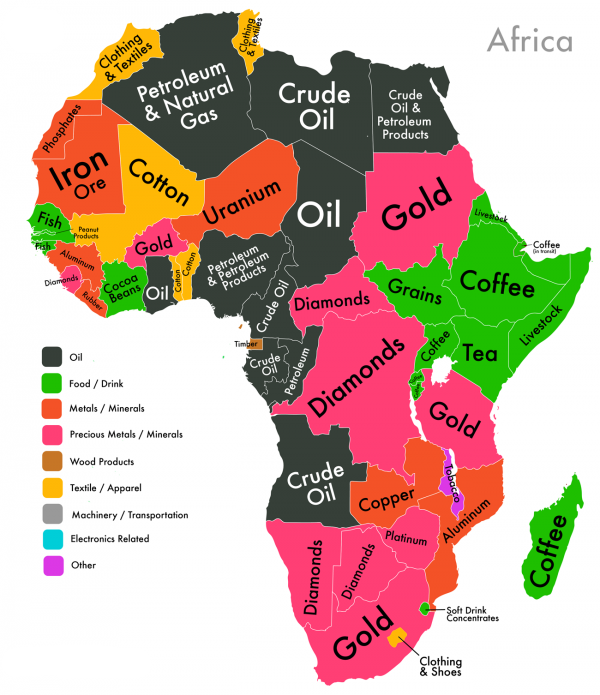
It's easy to see why people see Africans as people connected to these natural resources. But their worth is not defined by the natural resources that can be taken from them. Senghor says they are more than just what they can grow, mine, or take from the ground.
closeThey call us men of death.
But we are men of dance
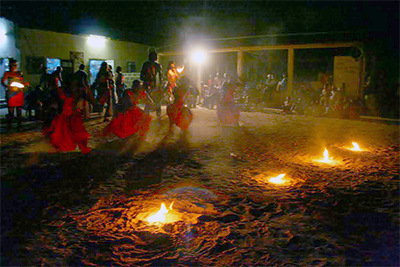
The African peoples can remind the Europeans of what it means to be human. Their souls have not been overrun by increased mechanization and war. And their contact with the natural world, the natural rhythms of the seasons and of lives lived more closely in touch with the earth, is something European cultures need if they're going to survive.
closeBy pounding the firm ground.